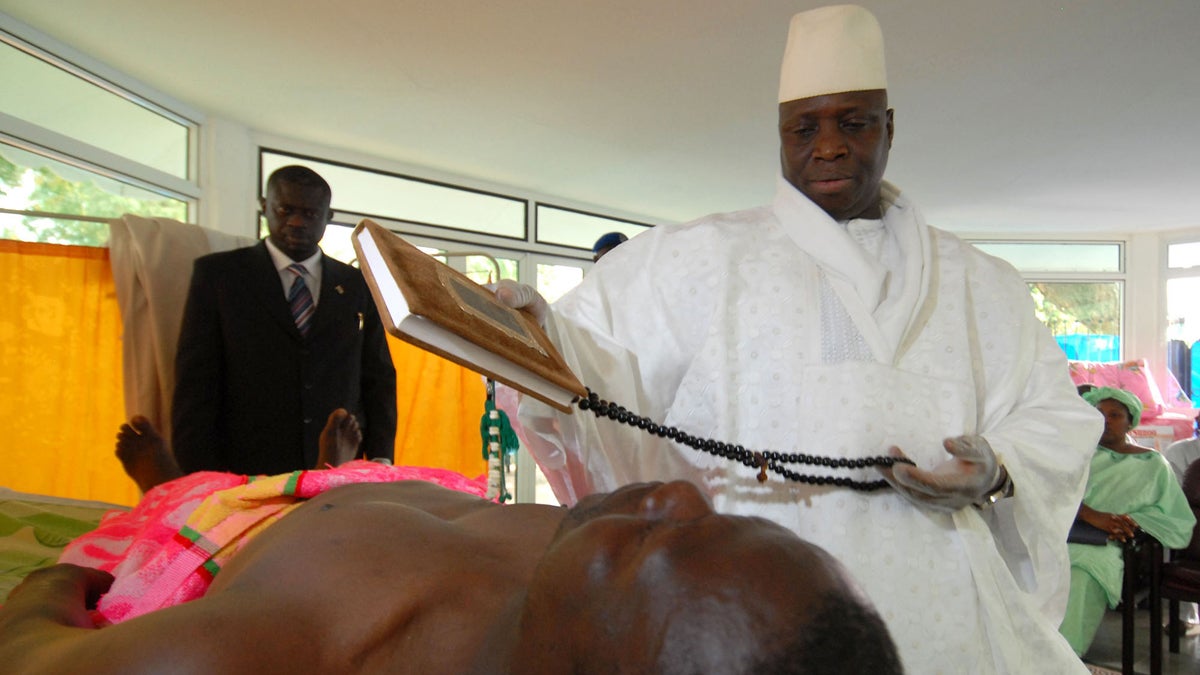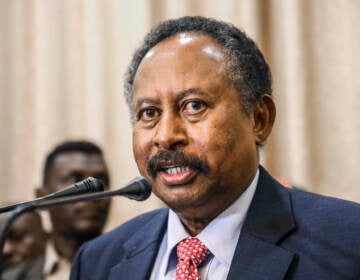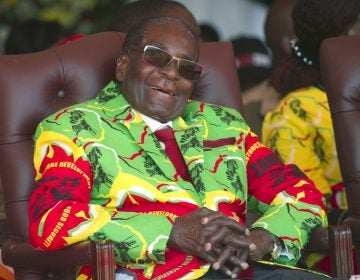Where there is no freedom: My year living under a dictator in West Africa

Gambia's President Yahya Jammeh
The truth is tricky. In the age of instant gratification and social media, Americans expect unlimited access to the truth while they pick and choose the truths that best fit their personality and beliefs. Truth has become nail polish in the land of the free and impatient.
Depending on where you live in this world, telling the truth may land you in prison or an unmarked grave. I know that fact all too well. Case in point: By writing this essay, I have ensured that I can never return to The Gambia, the country I called home for 12 months in 2011.
I came to The Gambia as a Peace Corps volunteer on Jan. 4, 2011. At the time, I was decidedly frustrated with my existence as an American. I was leaving behind a job I didn’t care for, a romantic relationship that was on its last legs, and a political system that by all appearances seemed hell-bent on screwing over everyone under the age of 40. I guess you could say America and I needed a break.
My Peace Corps service seemed like the perfect way to hit the “reset” button. I would be helping people I didn’t know, and I would be thousands of miles away from the people and systems I did know. Thirteen months, seven weeks, and five days after submitting my application to Peace Corps, I was on a plane bound for the country nicknamed the Smiling Coast of Africa.
‘Absolute power and zero tolerance’
Shortly after arriving at my Peace Corps post, reality set in, a reality named Yahya Jammeh. Or, to be precise: His Excellency Sheikh Professor Alhaji Dr. Yahya A.J.J. Jammeh.
A quick Google search will identify Yahya Jammeh as the president of the Islamic Republic of The Gambia, though this title is misleading, as Jammeh rules his tiny country with absolute power and zero tolerance for critics. He landed his current gig following a bloodless coup in 1994, and though there have been four presidential elections in The Gambia since he came to power, the democratic process is rigged in Jammeh’s favor. Opposition candidates have only 11 days to campaign before Election Day, and that’s only if they are able to cough up the required 1,000,000 dalasi registration fee ($23,000 in U.S. currency).
From the day we arrived, my fellow Peace Corps volunteers and I were warned to avoid writing anything critical about President Jammeh in emails, social media, or blog posts. This directive was delivered by our country director and echoed by personnel who worked for the U.S. Embassy in Banjul. If we felt the slightest inclination to deviate from that warning, we were told to remember the fate of two British missionaries who were sentenced to a year of hard labor for writing a less-than-favorable sentence about Jammeh in an email that went out to their supporters back home.
We were also discouraged from telling our Gambian friends and neighbors “the truth” about AIDS, because Jammeh had invented a cure for it. Back in 2007, His Excellency announced a “foolproof” method to cure AIDS involving a series of herbal treatments that could only be administered on Thursdays. The Gambia’s HIV-positive patients could receive the treatment for free, provided they stop taking their antiretroviral medications. When the U.N. envoy to The Gambia publicly shared her concern that the president’s announcement would encourage risky behavior that would increase the rate of new HIV infections, she was asked to leave the country within 48 hours.
Again, for our own safety, we were told to abstain from commenting on the president’s actions. This time however, we were given an approved script to share with inquisitive schoolchildren and adults when the topic came up: “Where we come from there is no cure, so we believe that prevention is better than a cure.”
Failing at the basics
Over the course of 12 months, despite not being able to speak the local language fluently and coping with a stomach ailment that would eventually force me to leave my service early, I got to know the families in my village and see the effects of their president’s actions firsthand. While he may have “blessed” them with a “cure” for AIDS, he had failed to provide for their most basic needs. Electricity and indoor plumbing were reserved for tourists and Gambians lucky enough to live in Kombo, the city region. Not every village had a health clinic, or a doctor for that matter, unless the village was lucky enough to partner with an international relief organization. School was not mandatory for girls, and it was not uncommon for a man to take a bride several decades his junior as his wife.
Unemployment ran rampant, particularly among Gambian men in their twenties and thirties. Unmarried Gambian men could not secure visas that would allow them to leave the country for better work opportunities, a policy that inspired a whole generation of husbands to abandon their wives and children out of desperation for a better life. I still had my own problems and dissatisfactions back home, but I began to realize that a bad day for me in the states would be paradise for someone living in extreme poverty under an oppressive leader in a place like The Gambia.
I don’t have to tell you how I felt about America when I got home that December. I had no job, no relationship, and no idea when the economy would start to rebound, but I found something I thought I had lost — an appreciation for the freedoms I enjoyed as an American.
Beware a ‘savior’
It’s hard to imagine my homeland electing a president who would throw foreigners in jail over a few words in an email or deport a diplomat for daring to disagree with him. But I can’t ignore the similarities between the rhetoric being put forth by America’s Republican presidential candidate in 2016 and the ongoing antics of Yahya Jammeh, who will likely win his fifth election in December of this year. Jammeh portrays himself as a savior, the only person who can help his people despite enacting policies designed to keep them poor and deprive them of the critical thinking skills that would enable them realize how hopeless their situation is under his leadership.
Unlike the people of The Gambia, we Americans have unrestricted access to news articles about our presidential candidates written by a free press. We have the ability to criticize the policies of our elected officials without the fear of being imprisoned or tortured for exercising our right to free speech. And most empowering of all, we can elect leaders who represent our interests and vote out self-serving politicians who think over-the-top rhetoric is better than a plan.
Because that’s America, for better or for worse.
WHYY is your source for fact-based, in-depth journalism and information. As a nonprofit organization, we rely on financial support from readers like you. Please give today.




